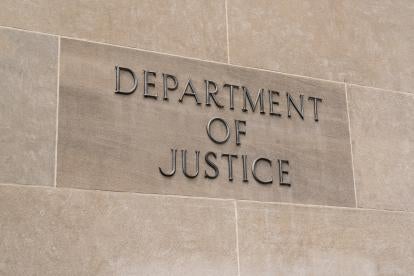On February 22, 2024, the U.S. Department of Justice (DOJ) released its annual False Claims Act (FCA) enforcement statistics for fiscal year (FY) 2023, which ended on September 30, 2023. While the $2.68 billion in total recoveries continues an upward trend from the $2.24 billion reported in FY 2022, a primary takeaway is the focus on DOJ-driven investigations.
During remarks on February 22 at the Federal Bar Association’s Qui Tam Conference, DOJ Principal Deputy Assistant Attorney General Brian M. Boynton reported that in FY 2023, the United States was a party to 543 FCA settlements and judgments—the most ever in a single year and a 54 percent increase from FY 2022. Boynton also announced that the department set a new record for issuing Civil Investigative Demands (CIDs); the Fraud Section issued 1,504 CIDs for documents, interrogatory responses, and testimony in FY 2023.
In FY 2023, more money was recovered from qui tam cases in which the United States intervened or otherwise pursued (nearly $1.9 billion) than in cases where the government declined to intervene ($442 million). This represents the inverse from FY 2022, during which recoveries from qui tam cases where the United States intervened or otherwise pursued was $803 million, and $1.18 billion was generated from cases where the United States declined to intervene.
As for new cases filed, whistleblowers filed 712 qui tam suits in FY 2023, up from the 658 suits filed in FY 2022. Whistleblowers, who can receive 15 to 30 percent of recoveries in FCA matters (depending largely on whether the United States intervenes), received over $349 million in FY 2023—a considerable decrease from the $496 million in FY 2022. DOJ-initiated cases also increased substantially—with 500 new matters in FY 2023 (up from 305 new matters in FY 2022).
With FY 2023 in the books, recoveries under the FCA since the 1986 amendments now exceed $75 billion and have exceeded $2 billion annually for 15 consecutive years.
Health Care Continues to be a Key Enforcement Priority
The health care industry continues to be the leading source of DOJ’s total FCA recoveries, with over $1.8 billion coming from managed care providers, hospitals, pharmacies, laboratories, long-term acute care facilities, and physicians, among others. While the $1.8 billion accounts only for losses to federal health care programs, DOJ’s Boynton did say that the United States “was instrumental in recovering additional amounts for state Medicaid programs.” Significant FY 2023 resolutions announced in DOJ’s February 22 press release include the following:
- Medicare Advantage: A health insurance company paid $172 million to resolve allegations that it knowingly submitted and failed to withdraw inaccurate and untruthful diagnosis codes for Medicare Advantage plan enrollees in order to increase Medicare reimbursements.
- Unnecessary Services and Substandard Care: An acute care facility paid $21.6 million to resolve allegations that it knowingly submitted claims for services performed by unlicensed/unauthorized students and for services that were useless or not performed.
- Opioid Epidemic: In continuing its pursuit of health care providers and entities that played a role in the opioid crisis, DOJ filed a complaint in intervention in an FCA suit against a retail pharmacy chain that allegedly filled unlawful prescriptions for controlled substances that lacked a legitimate medical purpose and were not medically indicated.
- Kickbacks: An imaging company and its owner paid $85.5 million to resolve allegations that they paid above-fair market value supervision fees as kickbacks to cardiologists to induce them to refer patients for PET scans.
- Other Health Care Fraud: A health system paid $95.5 million to resolve allegations that it made or received payments that were not allowed under the contract with the state, did not reflect fair market value, were duplicative of other required services, and were unlawful gifts of public funds.
- Pandemic-Related Fraud: In FY 2023, DOJ resolved approximately 270 FCA matters in connection with improper Paycheck Protection Program loans, recovering more than $48.3 million.
We expect the health care industry to remain a key DOJ enforcement priority in 2024.
Looking Ahead in 2024
Cybersecurity
DOJ’s Civil Cyber-Fraud Initiative is expected to remain a key enforcement priority this year. Announced in 2021, the initiative uses the FCA to hold accountable entities and individuals that put U.S. information and systems at risk by violating cybersecurity requirements. Significant FY 2023 resolutions announced in DOJ’s February 22 press release include the following:
- Nearly $300,000 to resolve allegations that a website creator and host failed to secure personal information on a federally funded children’s health insurance website, and
- Over $4 million to resolve allegations of cybersecurity failures involving government contracts (DOJ noted how the company earned cooperation credit by self-disclosing and conducting an internal investigation, among other things).
In his February 22 conference remarks, Boynton announced cybersecurity as a “first priority” and explained how DOJ is “currently investigating many more cases involving alleged violations of cybersecurity requirements.” While DOJ’s Civil Cyber-Fraud Initiative has not resulted in a seemingly large proportion of DOJ’s settlements and judgments (exact figures are not publicly available), Boynton pledged that the department will “continue to dedicate resources to investigating companies that fail to comply with their cybersecurity obligations” and that these cases are expected to be a “significant area of enforcement in the coming years.”
Given the intense focus on cybersecurity compliance, companies would be well served to update cybersecurity and information security policies to align with best practices and regulatory requirements, regularly evaluate contractual terms, monitor enforcement actions to stay on top of ongoing trends, and ensure incident response plans are up to date.
Medicare Advantage and Private Equity
During his February 22 remarks, Boynton also explained how Medicare Advantage will be a key enforcement priority in 2024 and how DOJ will “expand its focus on the Medicare Part C Program to include an examination of the role that vendors and providers play in the diagnoses that are submitted to the government.” Highlighting private equity firms, Boynton noted that DOJ is committed to holding accountable “third parties that cause the submission of false claims”—to include “private equity firms among others.” A noted example of how investors can influence patient care is by “providing express direction for how a provider should conduct their business, or more indirectly by providing revenue targets or other indirect benchmarks intended to prioritize reimbursement.”
DOJ’s focus on private equity and venture capital may result in novel theories of FCA liability, and investors should monitor and stay abreast of government enforcement and FCA litigation in this arena.
* * *
Staff Attorney Ann W. Parks contributed to the preparation of this post.







 i
i


